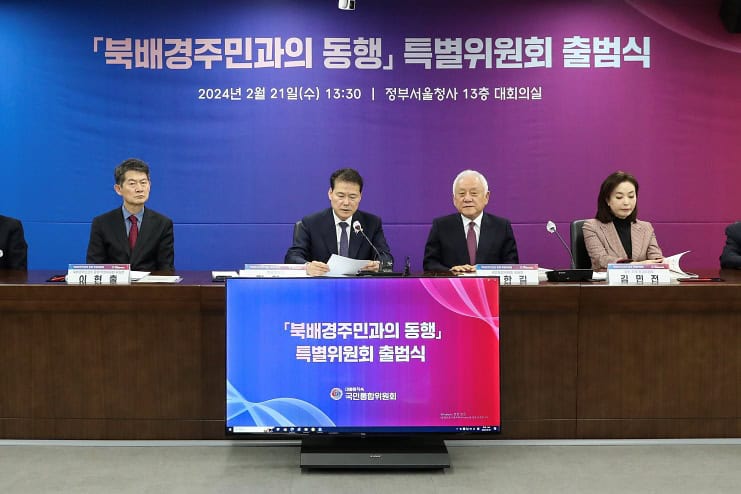July 14th is designated by the government as “North Korean Defectors’ Day.” Anticipating North and South Korean Integration
The date of enforcement of the North Korean Defectors Act has been finalized, taking into account its symbolic significance… Various commemorative events are planned
On July 14, the Ministry of Unification declared that ‘North Korean Defectors’ Day would be observed,’ in accordance with President Yoon Seok-yeol’s directive.
“Considering the significance and symbolism of the enforcement of the Act on the Protection and Settlement Support of North Korean Defectors (hereinafter referred to as the North Korean Defectors Act), which serves as the foundation for the legal status and settlement support policy of North Korean defectors, we have designated July 14 as North Korean Defectors Day,” declared Unification Minister Kim Young-ho at the launch ceremony of the Special Committee on Settlement Support for North Korean Defectors under the National Integration Committee this morning (the 21st).
The North Korean Defectors Act was passed by the National Assembly in December 1996 with an agreement between the ruling and opposition parties during the Kim Young-sam administration and has been in effect since July 14, 1997.
According to a Ministry of Unification official, the Ministry of Unification went through a process of consultation with North Korean defector groups and related ministries about 10 dates to establish the North Korean Defectors’ Day, and in the process, considering that support and interest in North Korean defectors must be sustainable, they decided to set the date as the enforcement date of the law, which provides the basis for the legal status of North Korean defectors.
The Special Committee for Settlement Support for North Korean Defectors under the National Integration Committee plans to conduct a comprehensive review of policies to support the settlement of North Korean defectors under the theme of “Accompanying North Korean Defectors” starting with the launching ceremony on this day, and to prepare a policy improvement plan by the end of May.
President Yoon had earlier said, “North Korean defectors are citizens of the Republic of Korea according to our Constitution,” during a Cabinet meeting on the 16th of last month. He then gave the Ministry of Unification instructions to “establish a ‘North Korean Defectors’ Day.'”
Accordingly, the Ministry of Unification, which has previously concentrated on assistance and contacts with North Korea, will now give more attention to helping North Korean defectors, integrating South and North Korean citizens, and making concrete plans for unification.
Before 1993, the typical annual number of North Korean defectors entering the nation was less than ten. However, as the North Korean famine intensified in 1994, the number of defectors climbed to over fifty per year.
Prior to 1993, the majority of defections were from the military and special classes; however, from 1994 onward, defections from all classes increased. Extreme economic hardship, discrimination based on family history, and animosity toward the North Korean regime were among the main causes of defections.
The North Korean Defectors Act was passed at that time when the government realized that a policy for North Korean defectors was required to gain experience for the integration of South and North Korean citizens after unification. In actuality, though, the blending of South and North Korean citizens was less important than providing help to North Korean defectors.
READ MORE AT DAILY NK

